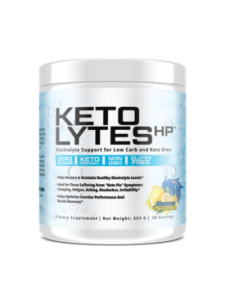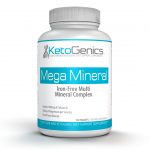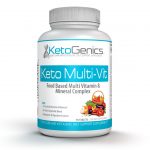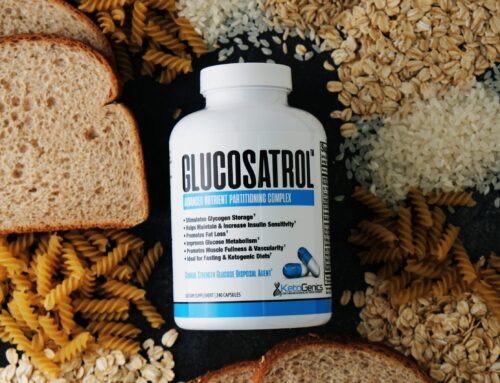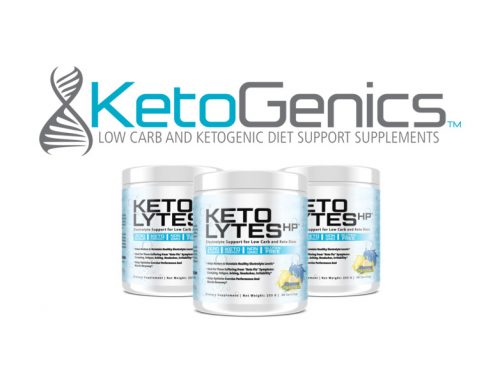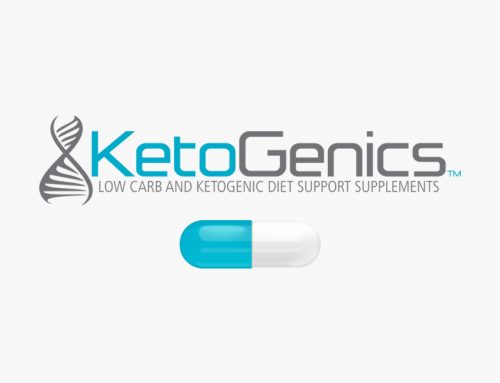The Importance of Electrolytes on a Ketogenic Diet
Great write up from Jeremy Partl over at Ketogenic.com.
Many people who start a ketogenic diet often experience the dreaded “keto-flu”, which is the name for the experience of one or a combination of the following symptoms:
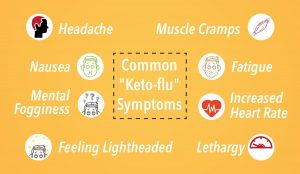
Even if you are following a well-formulated ketogenic diet, with a low amount of carbohydrate, moderate amount of protein, and high amount of fat as suggested, it is likely that you may still experience some of these symptoms.
The reason being while your macronutrients may be in line, there is another important factor to consider, ensuring you keep your body properly nourished and functioning well. That key factor is the balance of electrolytes in the body.
In this article, we will cover the importance of electrolytes on a ketogenic diet.
What Are Electrolytes?
Electrolytes are minerals found in the body that are the electrical signaling molecules used for maintaining functions within the body such as regulating your heartbeat and allowing muscles to contract for functional movement.
The most relevant electrolytes in this context are sodium, potassium, magnesium, chloride, and calcium.
Why Monitoring Your Electrolytes is Important
When you shift to a ketogenic diet, your body tends to release more water as opposed to storing it.
The reason being that there is less insulin produced as a result of the composition of the diet. This leads to hormonal signals via the renin–angiotensin–aldosterone system, signaling your kidneys to excrete MORE water and retain LESS.
Along with increased excretion of water, the minerals found in that water are lost at a higher rate . In the end, you can quickly become depleted of the key electrolytes that your body needs to function properly.
As a result, you can experience some of the negative symptoms associated with the “keto flu”.
Getting The Right Amount of Each Electrolyte
Sodium
More than likely, you have probably heard that you should avoid adding sodium to your diet.
For most of the population, especially those who are metabolically unhealthy, high sodium intake typically comes along with a high calorie, high carbohydrate diet, which over the long term, has resulted in increasing rates of obesity and hypertension .
However, for individuals on a low carbohydrate diet or athletes that are training hard, the truth is that your body actually needs extra sodium.
Potassium is another electrolyte of concern on a ketogenic diet. Just as with sodium, potassium is excreted at a greater rate with a low carbohydrate intake.
When you say the word potassium, most people would probably tend to think first of bananas and potatoes. Not exactly keto-friendly, right?
Luckily, there are ways to get more potassium in your diet while remaining ketogenic:
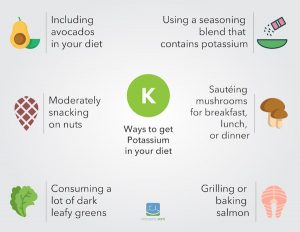
Potassium on a Ketogenic Diet
Magnesium
In general, magnesium deficiency is becoming a more common nutrition deficiency for the whole U.S. population.
Some of the best keto friendly ways to bump up your magnesium intake are:
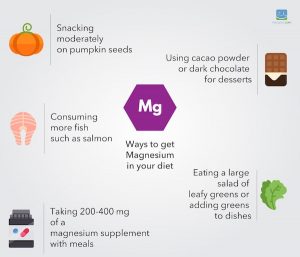
Don’t Forget The Water
While you need to make it a priority to keep your electrolyte intake escalated, it is also important to increase your water intake as well.
With the switch to a ketogenic diet, you will probably experience increased urination during the first couple of days. Additionally, as mentioned before, your body does not retain water as well. Thus, it is important to keep your water intake high to ensure proper hydration.
An easy and convenient way to determine hydration status is to check the color of your urine. If it is a pale yellow or clear color, like lemonade, then the odds are that you are well hydrated.
The darker it is, more like the color of apple juice, the more you may need to drink up.
Summary of Electrolytes on a Ketogenic Diet
Whether you are preparing to embark on a ketogenic diet, or are suffering from any of the mentioned symptoms, make sure you are conscious of your electrolytes and not just the macronutrients of the foods you are consuming.
Keto Conclusions
- Proper micronutrient intake is just as important as a well-formulated macronutrient intake.
- Electrolytes become depleted on a ketogenic diet due to increased water excretion and decreased water retention.
- Important electrolytes to focus on during a ketogenic diet are: sodium, potassium, and magnesium.
- Increasing your water intake is important on a ketogenic diet to maintain hydration.
To see Jeremy’s original blog post visit HERE.
Some recommended products to help manage your electrolyte levels on a ketogenic diet, click each image below:
Keto Lytes HP = #1 top selling keto electrolyte powder:

